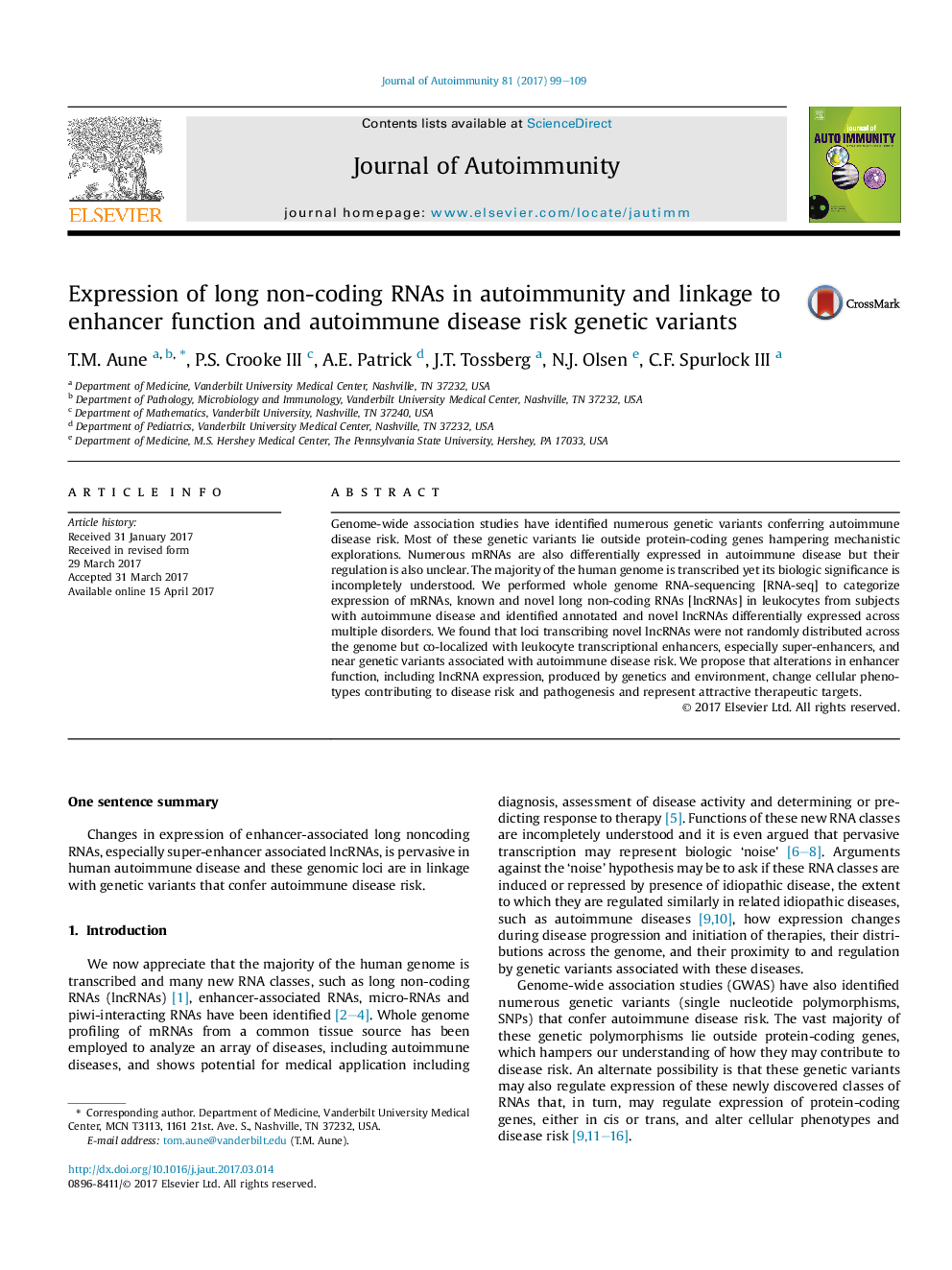| Article ID | Journal | Published Year | Pages | File Type |
|---|---|---|---|---|
| 5667819 | Journal of Autoimmunity | 2017 | 11 Pages |
â¢Changes in expression of super-enhancer-associated long noncoding RNAs are pervasive in human autoimmune disease.â¢These genomic loci are in linkage with genetic variants that confer autoimmune disease risk.â¢Defects in super-enhancer function may produce altered cell phenotypes contributing to autoimmune disease.
Genome-wide association studies have identified numerous genetic variants conferring autoimmune disease risk. Most of these genetic variants lie outside protein-coding genes hampering mechanistic explorations. Numerous mRNAs are also differentially expressed in autoimmune disease but their regulation is also unclear. The majority of the human genome is transcribed yet its biologic significance is incompletely understood. We performed whole genome RNA-sequencing [RNA-seq] to categorize expression of mRNAs, known and novel long non-coding RNAs [lncRNAs] in leukocytes from subjects with autoimmune disease and identified annotated and novel lncRNAs differentially expressed across multiple disorders. We found that loci transcribing novel lncRNAs were not randomly distributed across the genome but co-localized with leukocyte transcriptional enhancers, especially super-enhancers, and near genetic variants associated with autoimmune disease risk. We propose that alterations in enhancer function, including lncRNA expression, produced by genetics and environment, change cellular phenotypes contributing to disease risk and pathogenesis and represent attractive therapeutic targets.
